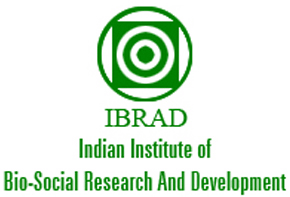Sustainable Tribal Development
Holistic Sustainable Tribal Development is a transdisciplinary approach to understand the Socio-Ecological System and intervene to enhance the competency of the community and build the social, natural and financial capital to pursue livelihood, food security and well-being which leads to improve the Human Development Index (HDI).
IBRAD pursues Participatory Action Research based study and intervention to demonstrate improvement in all the three interdependent sectors – (i) education in the form of building competency, skill development for adoption of appropriate technology – (ii) natural resource development for sustainable climate resilient livelihood (iii) organic farming for mitigation of malnutrition which collectively form the parameters of HDI in five states under project villages.
Since ‘Tribal and the forests have symbiotic relationships and they coexist’, collaborative training with the forest department to arrest degradation of forest, and planting trees through convergence with CAMPA to maintain perennial flow of natural capital remains a priority area, in addition to the support for implementation of FRA 2006.
IBRAD facilitates adoption of appropriate technology and document the process of improvement at some of the tribal landscapes under VAN DHAN Yojana, particularly for those tribal landscape which face critical biophysical constraints such as poor soils and limited rainfall, and have less favorable agricultural areas and the tribes are challenged by poverty.
Organic farming and climate resilient livelihood on the Agro-Forest Mosaic landscape covering more than 200 demonstration plots demonstrate possible pathways to overcome some of the challenges to build competency through the Community Resource Person (CRP) as change-maker. IBRAD establishes Outreach Program through a Built-in Prashikshan Shivir at the village level, keeping in mind the rights and responsibility of FRA 2006, Biological diversity Act 2002 which again has a direct impact on life and living of the tribal community to reach the SDG.
The action research provides a comprehensive synthesis of traditional knowledge for conservation of forest-based resources, their experience in building climate knowledge, and strategies that tribal communities will be exploring as partners for sustainable development.
Experimental plots and Handholding training support for the tribal community and their non -tribal neighbors will have a sense of growing together which will facilitate the mainstreaming processes also.




